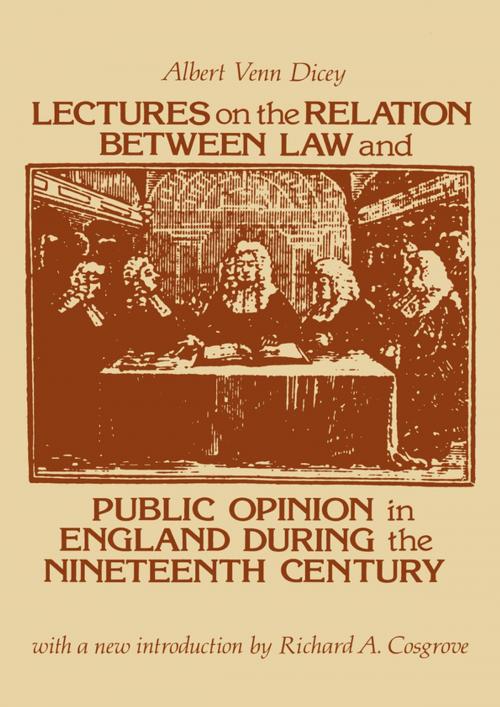Lectures on the Relation Between Law and Public Opinion in England During the Nineteenth Century
Nonfiction, Reference & Language, Law, Constitutional, Social & Cultural Studies, Social Science, Sociology| Author: | Albert Venn Dicey | ISBN: | 9781351509190 |
| Publisher: | Taylor and Francis | Publication: | July 12, 2017 |
| Imprint: | Routledge | Language: | English |
| Author: | Albert Venn Dicey |
| ISBN: | 9781351509190 |
| Publisher: | Taylor and Francis |
| Publication: | July 12, 2017 |
| Imprint: | Routledge |
| Language: | English |
The famed 1914 edition of this classic is one of the small handful of works that deserve to be read by Americans to understand the 1980s. Indeed, the final three chapters, describing the decline of will and consensus in late Victorian England, stand as a stark, unmistakable reminder that such national decline can happen again. Dicey was the most influential constitutional authority in late Victorian and Edwardian Britain. Modern politicians have often invoked the phrase "rule of law." So commonplace has it become that few recognize its source in the work of Dicey. Law and Public Opinion in England is written with simplicity, wit and a sense of purpose that marks it as a book apart. It did much more than fortell the decline of empire, it developed the forms in which such decline comes about. In many ways this book represents a pioneering statement on the libertarian tradition as a consequence of rather than rebellion against the legal norms of an advanced civilization. This is a central book for students of society and politics alike.
The famed 1914 edition of this classic is one of the small handful of works that deserve to be read by Americans to understand the 1980s. Indeed, the final three chapters, describing the decline of will and consensus in late Victorian England, stand as a stark, unmistakable reminder that such national decline can happen again. Dicey was the most influential constitutional authority in late Victorian and Edwardian Britain. Modern politicians have often invoked the phrase "rule of law." So commonplace has it become that few recognize its source in the work of Dicey. Law and Public Opinion in England is written with simplicity, wit and a sense of purpose that marks it as a book apart. It did much more than fortell the decline of empire, it developed the forms in which such decline comes about. In many ways this book represents a pioneering statement on the libertarian tradition as a consequence of rather than rebellion against the legal norms of an advanced civilization. This is a central book for students of society and politics alike.















